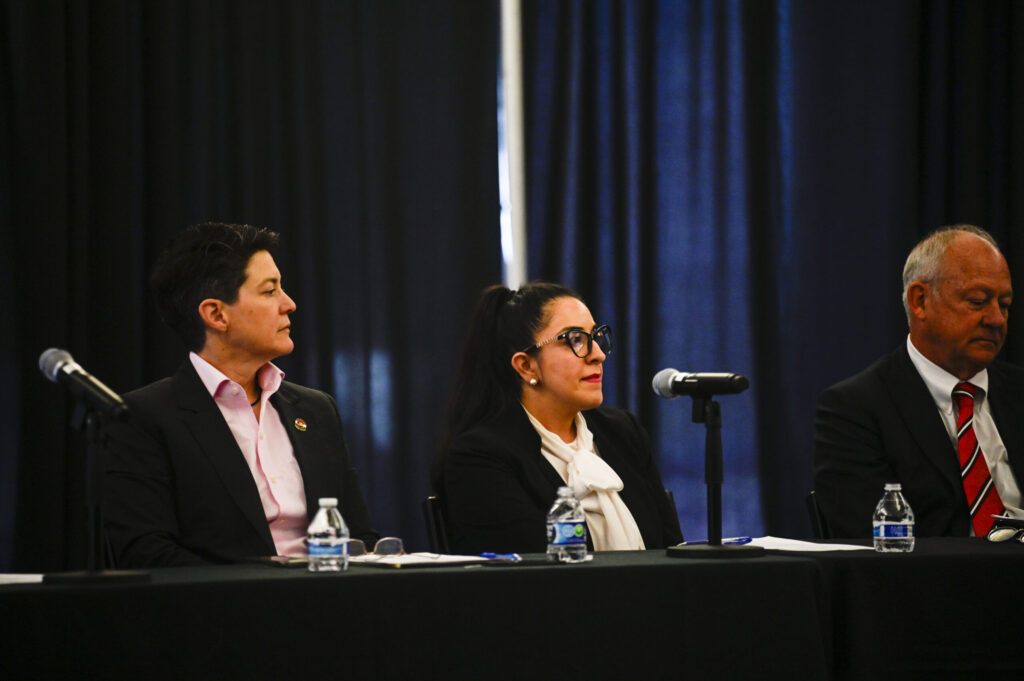Federal judge agrees state’s ‘intercept’ of man’s $3.5 million jury award was proper
A federal judge agreed last month that Colorado acted properly by not paying a man directly for violating his rights, but instead crediting the jury’s multimillion-dollar award toward the crime victim restitution he still owed in his criminal case.
Addressing an unusual question, U.S. District Court Judge S. Kato Crews determined it was permissible for the state to “intercept” the more-than-$3.6 million Jason Brooks received after jurors found the Colorado Department of Corrections violated his rights under the Americans with Disabilities Act. Crews rejected the idea that the state had to pay Brooks directly, not divert it to Brooks’ existing restitution obligation.
“Here however, despite not receiving the payment in the form he preferred, it is undisputed that Mr. Brooks received the benefit of the CDOC’s payment because the funds were applied to his restitution account from his prior criminal convictions,” wrote Crews in an April 25 order.
Brooks was incarcerated after pleading guilty to multiple counts of securities fraud in 2010. Brooks suffered from ulcerative colitis that required him to use the bathroom upwards of 15 times per day. While imprisoned, he sought a reasonable accommodation for his disability under the ADA. Instead, he wound up missing “thousands of meals” between 2012 and 2018 to deal with his incontinence around meal times, in addition to experiencing “stabbing pain” and defecating on himself.
Jurors awarded him $3.5 million in late 2022, and the amount reached nearly $3.66 million with interest.
However, Brooks informed Crews that the 19th Judicial District in Weld County subsequently intercepted the payment and applied it to the $5.1 million he owed in crime victim restitution. Brooks then asked Crews to enforce payment of the award to him, arguing the state’s responsibility is not satisfied when it compensates a third party.
A civil defendant who loses at trial “cannot satisfy a judgment by paying all (or some portion) of the judgment amount to an entity or person to whom the plaintiff owes money,” wrote Brooks’ attorneys. “If it were otherwise, nothing would prevent that defendant from paying any of the plaintiff’s creditors (say, a credit card company or a mortgagor), rather than the plaintiff.”
In addition to arguing the judicial district’s intercept of the award was not legally authorized, Brooks’ lawyers also believed the government’s actions conflicted with the ADA’s goals of compensating injured plaintiffs and deterring future violations.
The state responded that there was nothing improper about the sequence of events: It paid the amount awarded by the jury, Brooks received an economic benefit in the form of an approximately 70% reduction in his outstanding restitution debt and his victims were closer to being made whole.
“Furthermore, the administrative intercept does not frustrate the purposes of the ADA because Mr. Brooks was compensated for his injuries and the state suffered punitive fiscal loss as a result of the judgment,” wrote Assistant Attorney General Andrew M. Williams.
Crews agreed with the state that Brooks did, in fact, receive the “financial benefit of the payment.”
“Mr. Brooks and his victims, rather than the State of Colorado, benefited from the state’s interception of the payment because the state applied those funds to Mr. Brooks’ restitution,” he wrote.
Crews added that the 19th Judicial District was not a party to the case and Brooks would need to pursue any challenge to that entity’s conduct separately.
Brooks told Colorado Politics he plans to appeal and said Crews avoided several arguments he made.
“I think Judge Crews made an intellectually dishonest adjudication of this issue and I have lost all respect for his decision making,” Brooks said.
Brooks, who subsequently had his lawyers withdraw from the case, filed his own motion asking Crews to reconsider. He argued he was “worse off” than if he had never sued in the first place.
“Plaintiff filed a lawsuit and won — yet this Court abdicates its responsibilities, ignores the constitutional guarantees of due process, and tells Mr. Brooks to go somewhere else,” Brooks wrote.
The case is Brooks v. Colorado Department of Corrections.












